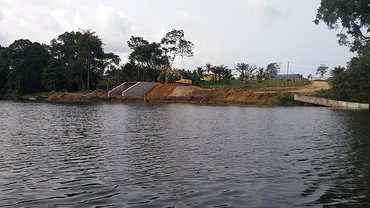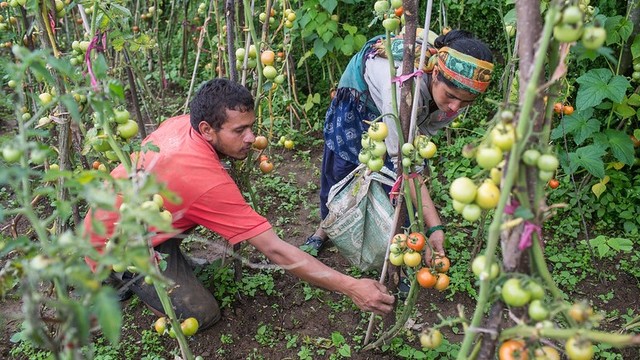What’s needed to halt threats to rural land rights in Cameroon
A new briefing explores the gap between statuary and customary land tenure systems in Cameroon, and suggests ways to advance land reform so that the rights of all are protected.

Rural and indigenous communities in Cameroon hold customary land rights, but these can clash with the country's laws (Photo: UN Women/Ryan Brown via Flickr, CC BY-NC-ND 2.0)
Land tenure insecurity is a problem across rural Cameroon. Rural and indigenous communities enjoy customary land tenure rights, but these are barely recognised by Cameroon’s legislation.
This misalignment between statuary and customary land rights has caused clashes between communities and companies, putting at risk the livelihoods, food security and the cultural survival of rural people.
Since the 1980s, organisations have aimed to address the issue of land rights by trialling a series of initiatives, but none has achieved sustainable solutions.
A new briefing produced by IIED, the Centre pour l’Environment et le Dévelopment (CED) and the Réssau de Lutte contre la Faim (RELUFA) evaluates these initiatives and suggests ways to advance the land reform process. The document has been produced in both English and French.
The publication highlights that threats to rural land happen due to the law’s failure to recognise pre-colonial land rights, the lack of effective local governance accountability, and other factors such as population growth or the scarcity of arable land, which increase competition between land holders.
Authors Sandrine Kouba, Amaelle Seigneret and IIED’s Emilie Beauchamp and Brendan Schwartz discuss the failures of existing approaches to securing improved land rights for all communities in Cameroon, including the formalisation of individual land rights, the use of dialogue platforms to clarify rules and the establishment of community forests.
In order to enhance rural land tenure security effectively, the authors outline a series of points for policymakers. Cameroon’s law reform should:
- Recognise land tenure rights, such as customary and collective land ownership
- Better support and regulate the behaviour of traditional authorities
- Create platforms that promote dialogue among land users and tenure holders to resolve land use conflict, and
- Harmonise legal provisions found across the land and sectoral natural resource laws.
This briefing has been produced as part of the 'LandCam: securing land and resource rights and improving governance in Cameroon' project
Contact
Brendan Schwartz (brendan.schwartz@iied.org), senior researcher in IIED’s Natural Resources research group




